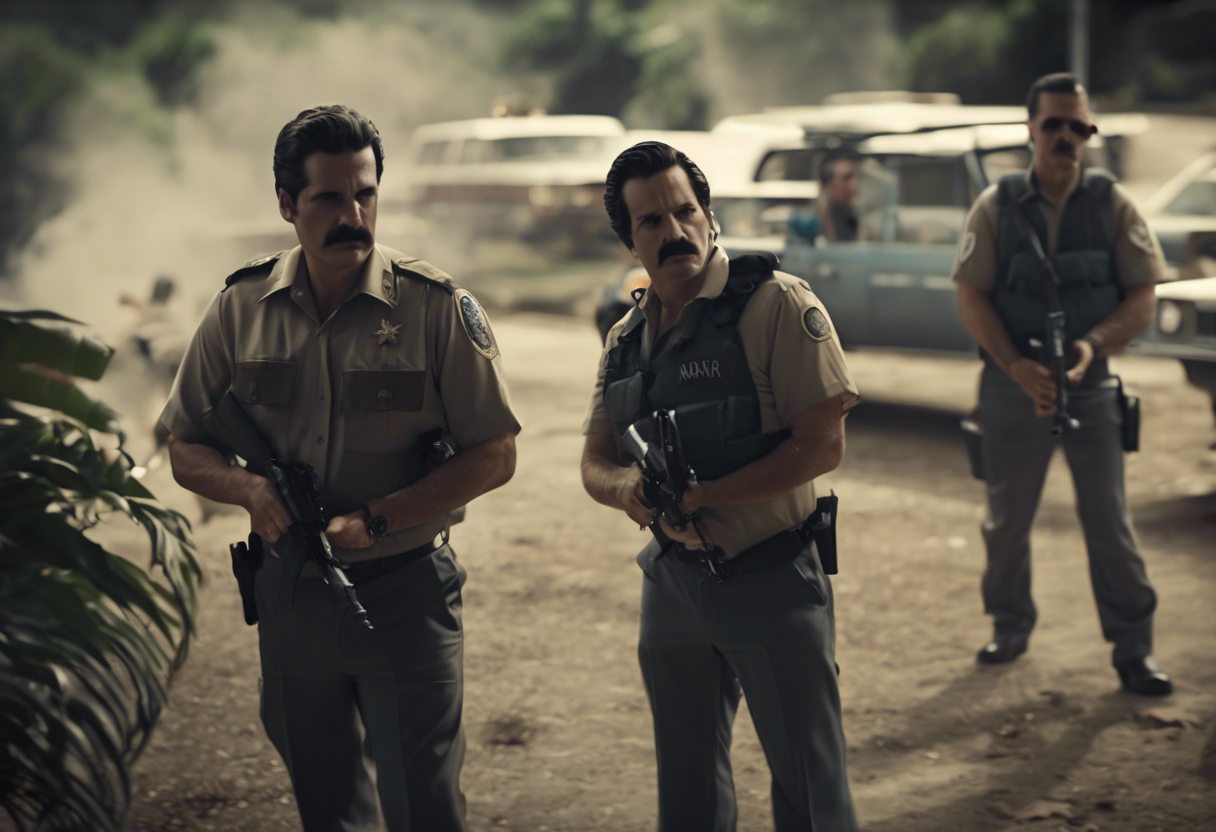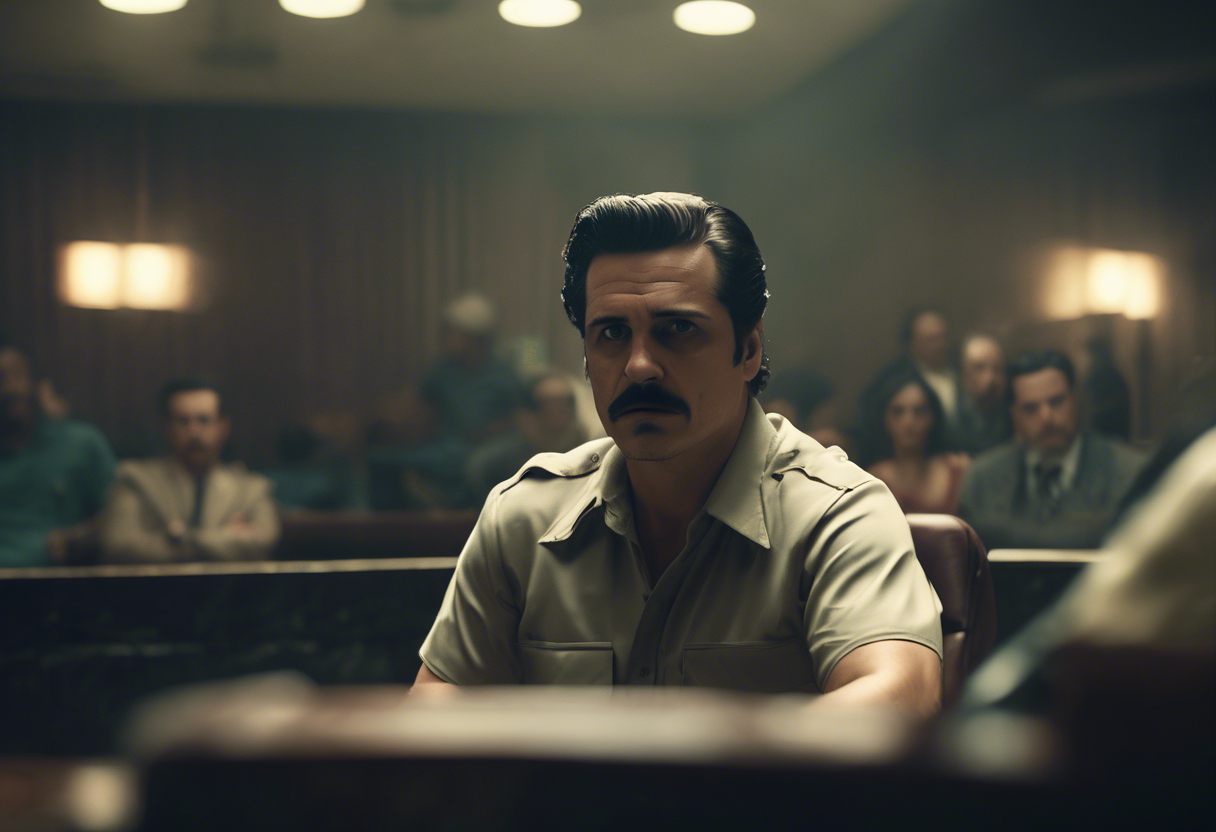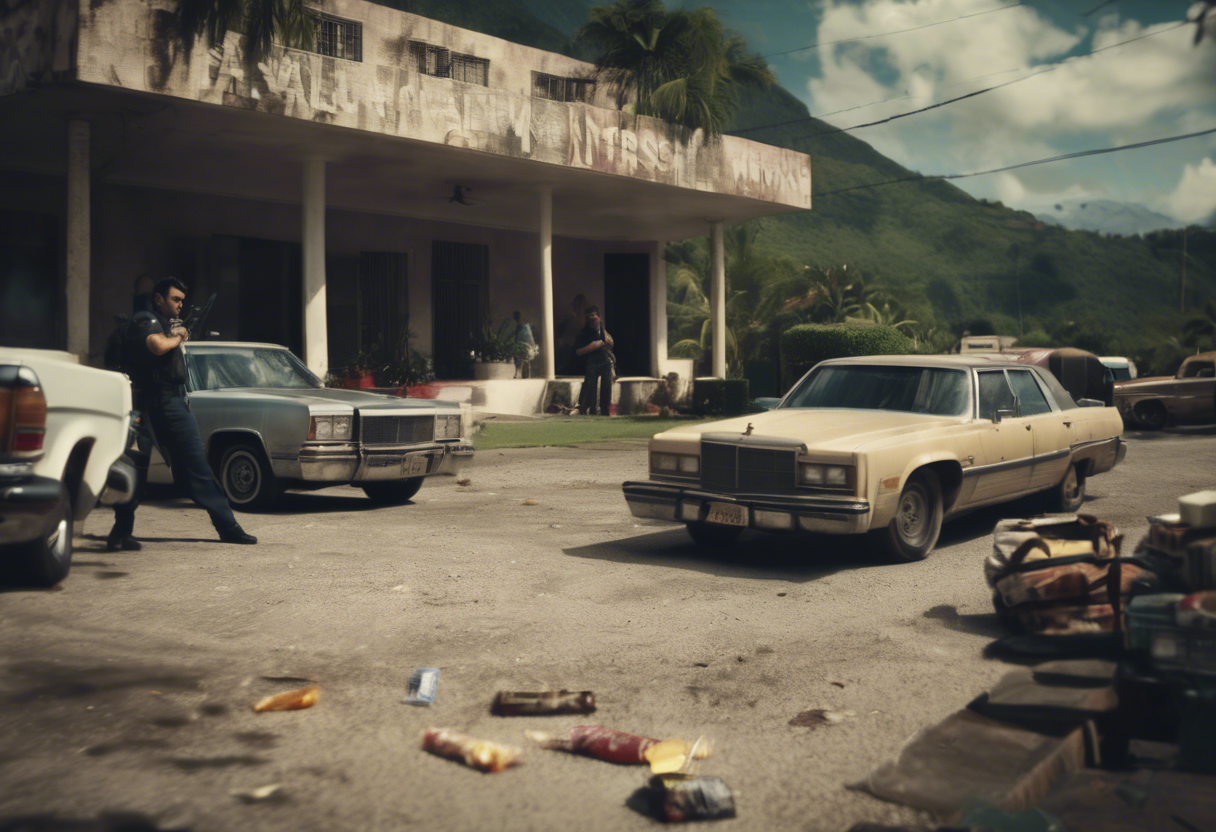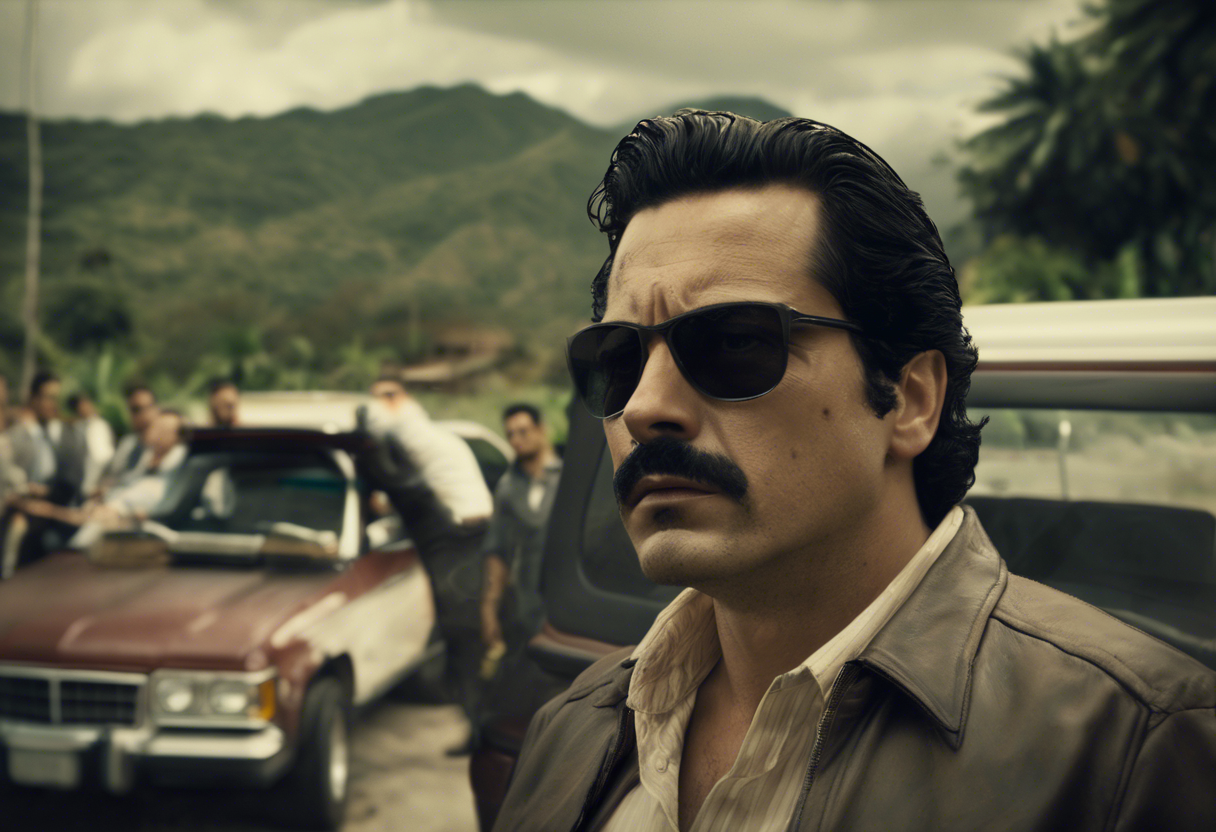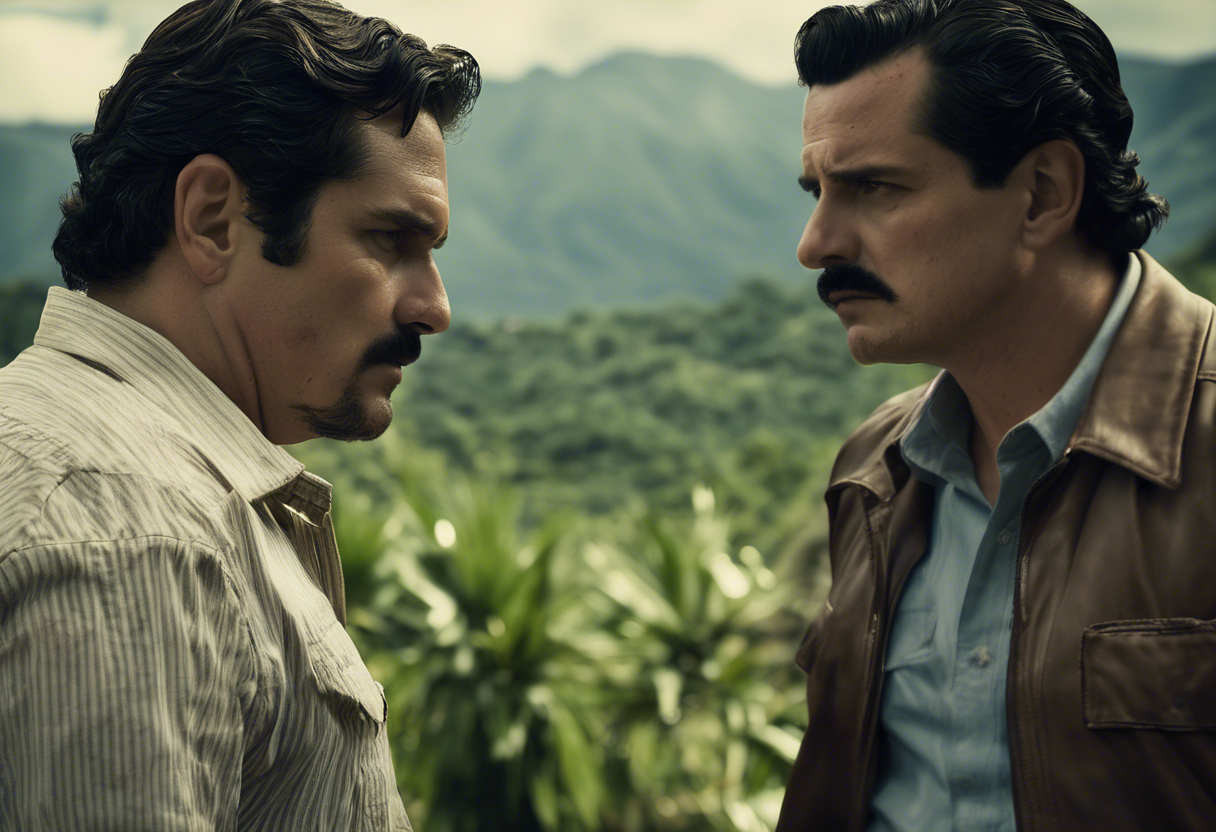Contents
Narcos Season 1: Episode 6 – Explosivos
Introduction
"Narcos" is a Netflix original series that chronicles the life and reign of Pablo Escobar, the notorious leader of the Medellín Cartel. Created by Chris Brancato, Carlo Bernard, and Doug Miro, the show is known for its gritty realism, meticulous historical research, and compelling narrative. The sixth episode of the first season, titled "Explosivos," is directed by Andrés Baiz and written by Andrew Black and Adam Fierro.
"Explosivos" stands out within the series for its intense focus on the escalating violence and political intrigue that characterized the late 1980s in Colombia. The episode is part of a larger narrative arc that explores the cat-and-mouse game between the DEA agents and the Medellín Cartel, as well as the internal conflicts within the cartel itself. Notable creative contributors include José Padilha, who served as an executive producer, and Rodrigo Amarante, whose music is featured in the episode.
Plot Summary
In "Explosivos," the tension between the Medellín Cartel and the Colombian government reaches a boiling point. The episode opens with Pablo Escobar’s organization planning a daring and deadly attack on the pro-extradition presidential candidate, César Gaviria. Escobar, determined to prevent Gaviria from becoming president and thus thwarting his own interests, hires a Spanish explosives expert, known only as "El Español," to construct a bomb that will kill Gaviria.
Meanwhile, DEA agents Steve Murphy and Javier Peña are working tirelessly to protect Gaviria from the impending threat. Murphy’s efforts are heightened by the knowledge that Escobar’s hitmen are closing in on their target. The agents face significant challenges, including the lack of cooperation from some Colombian officials and the sophisticated tactics employed by Escobar’s organization.
As the plot unfolds, Peña and his partner, Carillo, are closing in on José Rodríguez Gacha, one of Escobar’s top lieutenants. Gacha, known for his ruthless tactics and significant role in the cartel’s operations, becomes a focal point in the DEA’s strategy to dismantle the Medellín Cartel. The pursuit of Gacha is marked by intense action sequences and strategic maneuvers, highlighting the cat-and-mouse game between law enforcement and the cartel.
The episode also delves into the personal lives of the characters, particularly the DEA agents. Murphy’s relationship with his wife, Connie, is shown to be strained due to the dangers and pressures of his job. Peña, on the other hand, is depicted as a man deeply committed to his mission, often at the expense of his personal life.
One of the most significant aspects of "Explosivos" is the historical context it provides. The episode references real events, such as the involvement of ETA (Euskadi Ta Askatasuna), a Basque separatist group, in teaching Escobar’s organization how to make car bombs and other explosives. This historical detail is based on accounts from John Jairo Velasquez, aka "Popeye," one of Escobar’s top hitmen, who mentioned a mysterious figure known as "Miguel" or "Miguelito" who was involved in these activities [2][3].
The episode’s climax revolves around the attempted assassination of Gaviria. Despite the DEA’s best efforts, the bomb explodes, but Gaviria narrowly escapes. The aftermath of the explosion sets the stage for further escalation in the conflict between the cartel and the authorities.
Throughout the episode, the settings are vividly portrayed, from the bustling streets of Medellín to the rural hideouts of the cartel. The narrative arcs of the characters are well-developed, showing the moral complexities and personal sacrifices made by those involved in the war against the cartel.
Themes and Symbolism
"Explosivos" explores several key themes that are central to the "Narcos" series. One of the primary themes is the cycle of violence and its consequences. The episode vividly depicts the devastating effects of bombings and assassinations, highlighting the human cost of the cartel’s actions. This theme is symbolized through the use of explosives, which serve as a metaphor for the destructive power wielded by both the cartel and the authorities.
Another significant theme is the corruption and complicity that pervade the Colombian political and law enforcement systems. The episode shows how some officials are either directly involved with or turn a blind eye to the cartel’s activities, underscoring the systemic issues that hinder efforts to combat organized crime.
The personal costs of the war on drugs are also a major theme. The characters of Murphy and Peña illustrate the emotional toll of their work, as well as the moral dilemmas they face in their pursuit of justice.
Cultural Impact
"Explosivos" was well-received by audiences and contributed to the overall cultural impact of "Narcos." The episode’s depiction of real historical events and figures helped to raise awareness about the complexities of the drug war and its impact on Colombia. The show’s influence can be seen in other media, such as documentaries and films, that have followed in its footsteps by exploring similar themes and historical contexts.
Critical Reception
Critics praised "Explosivos" for its intense action sequences, strong performances, and meticulous attention to historical detail. The episode was noted for its ability to balance action and drama, keeping viewers engaged while also providing a nuanced look at the characters and their motivations.
Viewers also responded positively, appreciating the episode’s fast-paced narrative and the way it heightened the stakes for the characters. The episode’s climax, particularly the attempted assassination of Gaviria, was highlighted as a standout moment in the series.
Legacy
"Explosivos" remains a significant episode in the "Narcos" series, marking a turning point in the narrative where the conflict between the cartel and the authorities reaches new heights. The episode’s influence can be seen in future episodes and seasons, as the characters and plot arcs continue to evolve based on the events depicted here.
The episode’s lasting significance also lies in its contribution to the broader discussion about the war on drugs and its consequences. By portraying the complexities and human costs of this conflict, "Explosivos" helps to inform and engage audiences on a critical global issue.

